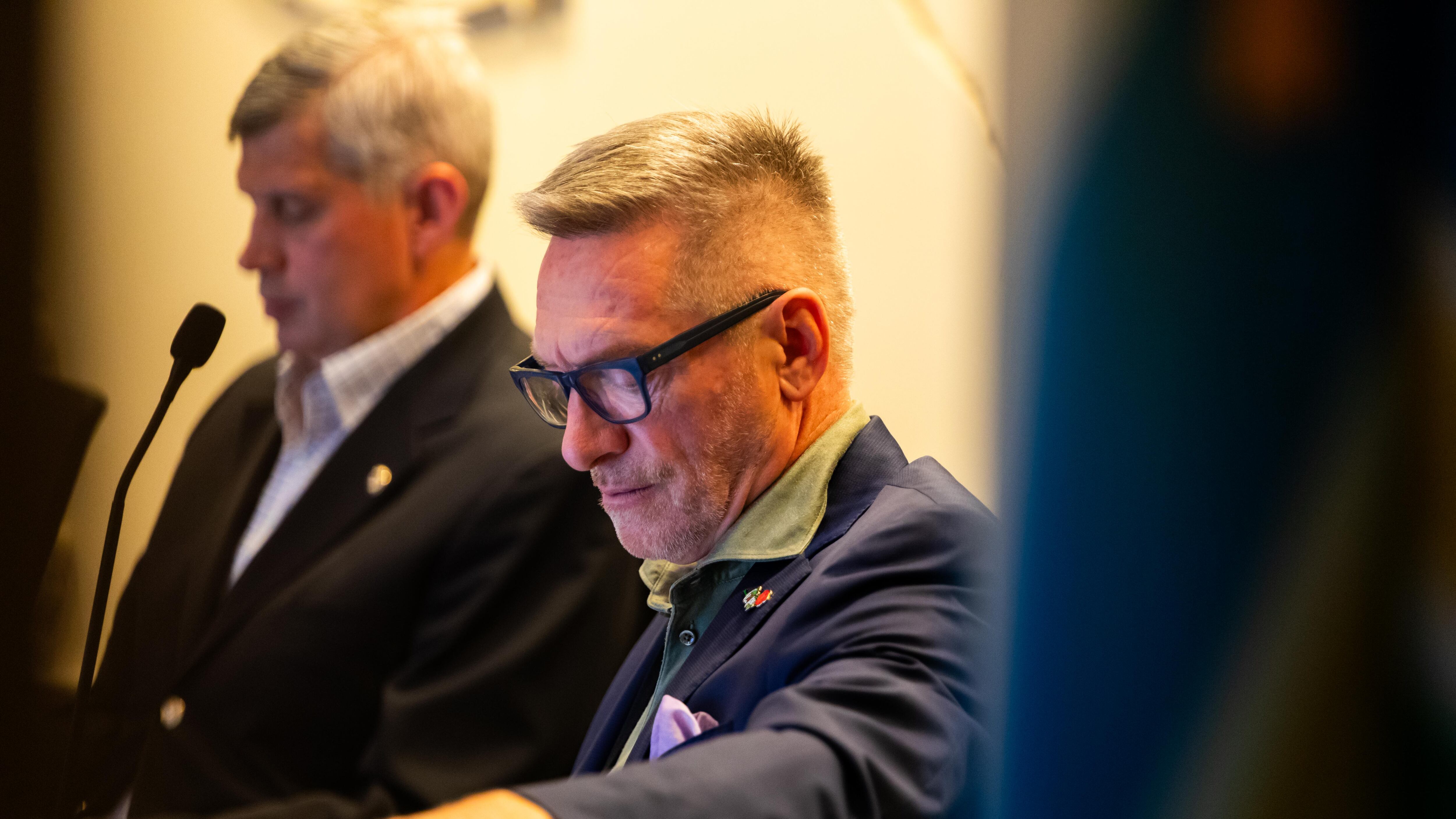Top staff to Portland City Commissioners Rene Gonzalez and Dan Ryan will meet with the City Auditor’s Office and the city’s Charter Transition Team on Wednesday morning to raise a specific concern ahead of election season: that the city’s contract for voter outreach could blur the line between neutral education and political advocacy.
Ahead of the city’s transition to an entirely new form of government in 2025, the city approved an three-year, $675,000 contract with United Way of the Columbia-Willamette last fall to conduct voter outreach aimed at educating historically disenfranchised populations like BIPOC residents, seniors, people with disabilities, immigrants and refugees. United Way will give chunks of that funding—totaling $210,000—to community organizations that have established connections with those priority populations. That education will focus on the two forms of ranked-choice voting that Portlanders will see when opening their ballots this October.
But Gonzalez and Ryan, who have linked arms in recent months on various initiatives, are calling the contract into question.
In particular, the two commissioners, according to an email thread obtained by WW, are concerned that the groups that could receive outreach funding from United Way include nonprofits that have 501(c)(4) political arms, which are allowed to make political endorsements, including endorsements of City Council candidates, in November.
“We stay committed to not creating a fundamental conflict of interest in funding 501(c)(3) organizations to do outreach while their corresponding 501(c)(4)′s are endorsing candidates,” wrote Gonzalez chief of staff Shah Smith in a Feb. 1 email to other top city officials, including those overseeing the city’s charter transition. “We have indicated the high likelihood of council action to address our concerns if an approach we have repeatedly sought to engage with you on, and voice serious concerns about, comes before council without appropriate consideration.”
Shoshanah Oppenheim, the city’s charter transition project manager, replied Feb. 12, assuring Smith that proper guardrails were in place to ensure there was no unfair dealing.
“All grant recipients will be required to sign legal agreements, which will be reviewed by the City Attorney’s Office, stating that they understand and accept the requirement to separate ranked-choice voter education efforts from any 501(c)(4) permissible work,” Oppenheim wrote. “We developed the strategies below to ensure there is confidence in the voter education program and that we are able to reach the voters who need the most engagement.”
Smith and T.J. McHugh, a top policy aide to Ryan, appeared not to be pacified by Oppenheim’s assurances.
“For clarity on next steps—I would like to level set again—that if we partner with a (c)(3) on our voter outreach, the (c)(4) arm will be prohibited to endorse any ballot measure or candidate in both the May election and next November for either the county or city,” McHugh wrote Feb. 20. “If an organization wishes to endorse a measure or candidate, they will be disqualified from conducting voter outreach. This would include indirect funding through organizations like the United Way—and I would like to ask we see who the United Way is subcontracting with in the briefing.”
As a result of the exchange, top staff from Ryan’s and Gonzalez’s offices will meet Wednesday morning with the City Auditor’s Office, chief administrative officer Michael Jordan, Oppenheim, and Sofia Alvarez-Castro, the city’s Charter Commission manager, to discuss their concerns.
The $675,000 city contract with United Way, awarded through a competitive bidding process, spans three years. United Way is initially partnering with three other organizations on the outreach: Democracy Rising, a 501(c)(3) that advocates for ranked-choice voting; a communications firm called Hearts and Minds; and Portland United for Change, a 501(c)(3) set up to advocate for the November 2022 ballot measure to alter the city’s form of government. (Fifty-eight percent of Portland voters approved the government overhaul.) United Way will begin choosing community organizations and nonprofits this spring to receive funding to conduct outreach with specific demographic groups.
Portland United for Change raised over $1 million to support the ballot measure in the lead-up to the November 2022 election, both from out-of-state groups that support ranked-choice voting and from a number of local social justice nonprofits like the Coalition of Communities of Color and its political branch, Building Power for Communities of Color.
United Way did not immediately respond to a request for comment.
